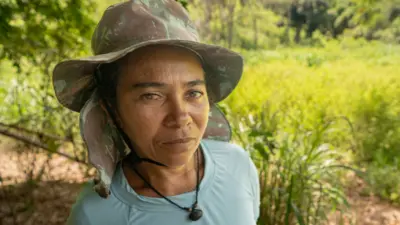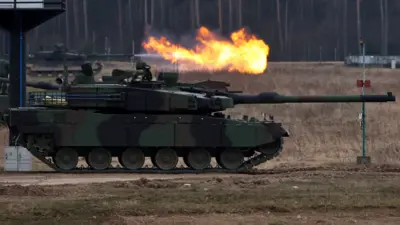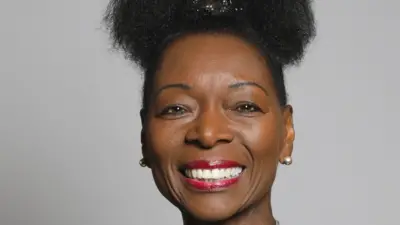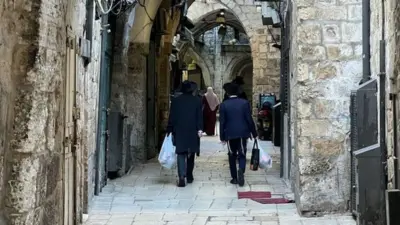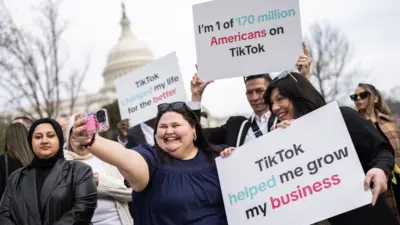We've updated our Privacy and Cookies Policy
We've made some important changes to our Privacy and Cookies Policy and we want you to know what this means for you and your data.
India rape: Bystanders ignored Vishakhapatnam attack
- By Geeta Pandey
- BBC News, Delhi
Image source, AFP
What would you do if you saw a woman being raped in front of you?
Would you intervene and help her? Or, would you keep walking, or make a video on your mobile phone which could lead to his identification and arrest later?
That's a question that's being asked in India after a woman was raped on a busy pavement in broad daylight in the southern city of Vishakhapatnam on Sunday.
A video of the crime, shot by an auto-rickshaw driver, shows many people walking by.
One man comes really close to where the crime is taking place but suddenly changes course and gets off the pavement, perhaps realising what's happening there.
"One man made a video while a second man called us to tell us about what was happening," police inspector GV Ramana told BBC Hindi.
"But by the time police reached there, the rapist had run away. He was identified from the video and we arrested him later that night," Mr Ramana said.
According to Indian media reports, the woman is in her late 20s and had come to Vishakhapatnam from the outskirts of the city after she had a fight with her husband.
Some reports said she was "mentally ill" while others said she was so enfeebled from hunger and thirst that she could not even scream for help.
Police said she was attacked by the man, who is in his early 20s, while she was resting under a tree on the pavement near a busy railway station. The rapist, they say, is an alcoholic and a drug addict who has previous criminal records for drug peddling and robbery.
Thousands of rapes are reported to the police every year in India, but the fact that the assault took place at 14:00 in the afternoon on a busy stretch of road, and no-one came forward to help the victim, has put the spotlight on the issue of bystander apathy, with some wondering if we have truly turned into a nation of onlookers.
Many took to social media to express outrage, describing this "new low in public apathy" as "disgusting".
This article contains content provided by Twitter. We ask for your permission before anything is loaded, as they may be using cookies and other technologies. You may want to read Twitter cookie policy and privacy policy before accepting. To view this content choose 'accept and continue'.
End of Twitter content, 1
This article contains content provided by Twitter. We ask for your permission before anything is loaded, as they may be using cookies and other technologies. You may want to read Twitter cookie policy and privacy policy before accepting. To view this content choose 'accept and continue'.
End of Twitter content, 2
There was similar outrage and much introspection after a 23-year-old physiotherapy student was brutally gang raped on a bus and then left on the street in the capital, Delhi, in December 2012.
Jyoti Singh - whose name was publicly revealed by her mother only in 2015 - died from her injuries in a hospital 13 days later.
Her male companion, who was also assaulted but survived, later recounted how they lay injured and bleeding - but no-one stopped to help them for 25 minutes.
Nearly five years later, not much has changed on the ground.
"If the incident of 2012 happened again, I'm afraid Jyoti Singh will die again," Philip Sunil Urech, co-founder of Zurich-based CrowdGuard, told the BBC.
Mr Urech, however, says there are several reasons why crowds behave the way they do.
"People are demanding civilians to intervene, but there's no training being offered to people on how to intervene. Also, there are questions about who takes the lead or who organises a crowd?"
He says people do not intervene because they fear intimidation from the police or legal trouble, and sometimes they may even fear for their lives.
In Vishakhapatnam too, some of the eyewitnesses told the police they were discouraged from intervening because the rapist had made threatening gestures at them.
It's an argument hard to digest, at least in this case, with some arguing that a group of people could surely take on the solo rapist, especially since he was drunk and wouldn't have been able to put up much of a fight.
Bystander apathy, however, is not limited to India - it's a global problem.
Earlier this year, there was shock in America when a video emerged which showed a man drowning in Florida while five teens mocked him and filmed his death.
And a few years ago in China, a two-year-old girl was left for dead after being run over by a van - and then ignored by 18 passers-by.
Mr Urech says a handful of countries in the world, including Germany, have laws which insist that people help those in need or risk prison time.
Last year, the Indian Supreme Court too came out with guidelines to protect "Good Samaritans", to ensure that those who helped victims of traffic accidents would not be harassed by the police or law.
Mr Urech says it would be a huge help if India extended the scope of this Good Samaritan law to cover the bystanders who intervened in cases of sexual assault.
Top Stories
Features & Analysis
Most read
Content is not available
